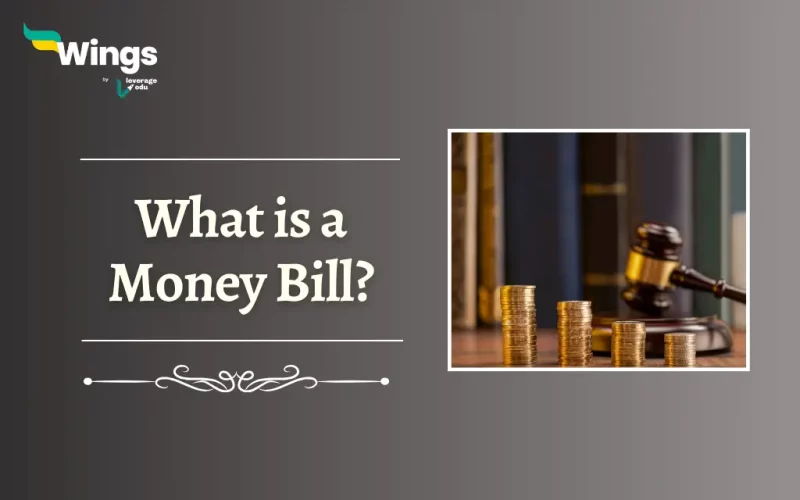A Money Bill is a monetary legislation that can only be introduced in the Lok Sabha. The Indian Constitution under Article 110 mentions the Money Bill and everything it entails. Additionally, a Money Bill is a bill if it contains ‘only’ provisions dealing with all or any of the 7 Provisions. Moreover, it deals with matters relating to taxation, public expenditure, borrowing of money by the Government, and other aspects of India’s monetary management. It is to be noted that the Rajya Sabha has a very limited role in such a bill. It can only discuss the bill for 14 days and it is upon the Lok Sabha to accept the recommendations of the Rajya Sabha. In addition, this blog also includes the 7 Provisions of a Money Bill in India as well as an example of a Bill.
Table of Contents
7 Provisions of a Money Bill in India
Furthermore, here are the 7 Provisions:
| 7 Provisions of a Money Bill in India | |
| Sr. No. | Provision of a Money Bill |
| 1. | The imposition, abolition, remission, alteration or regulation of any tax |
| 2. | The regulation of the borrowing of money by the Union Government |
| 3. | The custody of the Consolidated Fund of India or the contingency fund of India, the payment of moneys into or the withdrawal of money from any such fund |
| 4. | The appropriation of money out of the Consolidated Fund of India |
| 5. | Declaration of any expenditure charged on the Consolidated Fund of India or increasing the amount of any such expenditure |
| 6. | The receipt of money on account of the Consolidated Fund of India or the public account of India or the custody or issue of such money, or the audit of the accounts of the Union or of a state; or |
| 7. | Any matter incidental to any of the matters specified above. |
Also Read: What is Question Hour in Parliament?
How is a Money Bill Passed in the parliament?
Money bills can only be introduced in the Lok Sabha and require the President of India’s prior recommendation.
- After the Lok Sabha passes the bill, it is sent to the Rajya Sabha.
- Moroever, Rajya Sabha has limited authority over such bills.
- The Rajya Sabha can suggest amendments within 14 days.
- However, the Lok Sabha is not obligated to accept these suggestions.
- If the Rajya Sabha does not return the bill within 14 days, it is automatically passed as it was originally approved by the Lok Sabha.
- The Lok Sabha has the ultimate authority and can pass the bill without including any recommendations from the Rajya Sabha.
- Once approved by both Houses, the bill is presented to the President, who must give their assent since they cannot return a money bill for reconsideration.
Also Read: What is the Difference between a Financial Bill and a Money Bill?
What is an Example of a Money Bill?
The Jammu and Kashmir Appropriation Bill of 2024 is a Money Bill passed in February 2024.
- It authorized additional spending from Jammu and Kashmir’s budget for the financial year 2023-24.
- This likely means unforeseen circumstances require extra funds not covered in the initial budget allocation.
- Moreover, the bill allows the government to spend this extra money on various public services in Jammu and Kashmir.
Related Blogs
Lastly, we hope you liked our blog and gained an understanding of What is a Money Bill. Moreover, you may even read more blogs and empower yourself with knowledge regarding Civics and Polity!
 One app for all your study abroad needs
One app for all your study abroad needs













